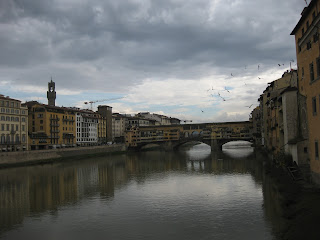I grew up in a house filled with mystery books with parents who loved to read. I often forgot to do my chores because I had my head in a book, and the love of reading lasted long after the flashlight-under-the-covers stage. History came alive for me when I went on an archaeological excavation in Israel after my freshman year in college. That experience changed my life. I returned to Israel for my junior year, and then earned a doctorate in archaeology. My work career at the University of Illinois was spent in museums and laboratories, studying ancient pottery, metalwork, and mummies. Now I write mysteries about archaeology, art forgery, and the illegal antiquities market.
Tell us a bit about your two series. Are your characters’ careers based on your real life experience?
Archaeologist and museum curator Lisa Donahue is the heroine of the first four mysteries. She’s a lot like me, but a bit younger, and has unusual complications in her life—such as two marriages, step children, and a tendency to run into dead bodies at her museum job. Flora Garibaldi, my current heroine, is only in her twenties. Flora is a half-Italian professional paintings conservator (I have no Italian heritage, and I volunteered in a conservation lab for two years).
How do you “get to know” your characters before and while you’re writing the books?
I have a character file on my computer and add information to it about each person before and during the writing process. I write down family background, personality quirks, dark secrets, and motives for each person.
How do you construct your plots? Do you outline or do you write “by the seat of your pants”?
I outline, again in a separate computer file, and then allow myself to change my mind as things come to while I’m writing. I modify the outline as I grow the chapters. Sometimes my characters talk to me on my long walks, or plot twists come out of nowhere when I’m doing something else. I’ve learning to respect the “percolating” process, realizing a part of my mind is still working even when I’m not writing. Once I even changed who the villain was 2/3 of the way through the novel because it resulted in a better story.
Which do you consider more important, plot or character?
Character, by a short lead. I have to like the characters, even the villain, enough to keep reading any book. The plot has to be compelling enough to engage the mind, but characters must come across as real people with strengths and flaws and fascinating pasts that help explain the present.
What is the biggest challenge you’ve faced as a writer and what inspires you and keeps you motivated?
I still teach part-time, and I have other interests besides writing, especially painting. Sometimes the two interests feed each other; when I get stuck in writing, painting releases another kind of creativity. My biggest challenge is making my story long enough for a traditional mystery novel—I am crippled by years of writing dense (short) academic articles.
Do you have a “How I got my agent” story you want to share?
I’ve never had an agent (not for lack of trying!)
What are you working on now and what are your future writing plans?
I am drafting my third Flora Garibaldi novel, The Botticelli Caper, a mystery centered around art forgery and the Uffizi Gallery’s long renovation project. I suspect I will write more short stories and novellas in the future.
What is a typical workday for you and how many hours a day (or week) do you devote to writing?
About ten hours per week. I’m always working on something, even if it’s just a blog
If you could take only three books with you for a year-long writing retreat in a gorgeous setting with no library, which three would you take?
I’d never let myself be caught without a real library! A Complete Works of Shakespeare, a fat world mythology, and a comprehensive poetry anthology.
What advice do you have to offer to an aspiring author?
Keep writing, even if it’s just a blog or a journal, because that keeps your writing and thinking muscles exercised. Try different forms: non-fiction, fiction, poetry…
What’s the craziest thing you’ve ever done?
Camping illegally on Masada (Israel) when I was 18.
What question do you wish interviewers would ask? (And what’s the answer?)
Why do I write? Answer: to create the kind of books I like to read.
Where can we learn more about you and your books?
Website: www.sarahwisseman.com



















